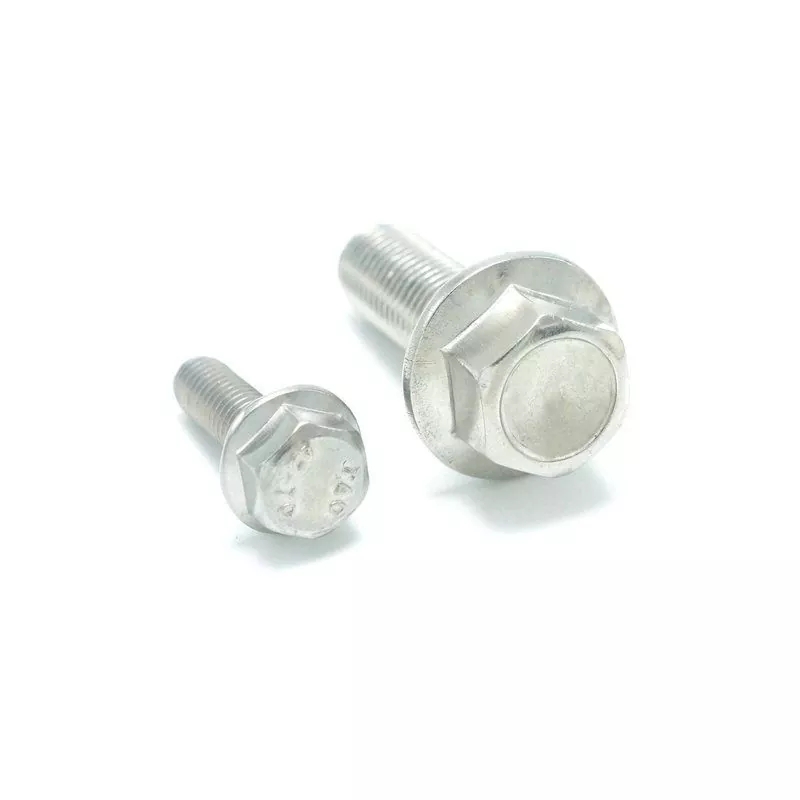What is the benefit of flange bolt?
2023-10-17
Flange bolts offer several benefits compared to standard bolts and fasteners, making them a valuable choice for specific applications. Here are some of the key advantages of using flange bolts:

1. Enhanced Load Distribution: The integral flange beneath the bolt head provides a larger bearing surface compared to a standard bolt head. This larger surface area helps distribute the clamping force more evenly across the connected parts. As a result, it reduces the risk of localized stress concentrations and helps prevent damage to the surfaces being joined.
2. Vibration Resistance: Flange bolts are particularly useful in applications where vibration, movement, or dynamic loads are a concern. The flange helps stabilize the bolted joint, reducing the chances of loosening due to vibrations. This is important in industries such as automotive, aerospace, and machinery.
3. No Need for Washers: The built-in flange eliminates the need for a separate washer. This can save time and labor during assembly because you don't have to search for, place, and secure a washer with each bolt. It also reduces the risk of misplacement or forgetting the washer.
4. Prevents Bolt Rotation: The flange design helps prevent the bolt from rotating during installation or when subjected to external forces. This is especially crucial when maintaining a specific alignment or orientation is essential for the functioning of the connected parts.
5. Reduces Galling: Galling is a form of wear that can occur between threaded fasteners and the materials they connect. The larger bearing surface of the flange helps reduce the risk of galling by distributing the load more effectively.
6. Weather and Contaminant Resistance: The flange acts as a shield or barrier between the bolted joint and the external environment. This can help protect the joint from moisture, dust, chemicals, and other contaminants that could lead to corrosion, weakening, or damage over time. As a result, flange bolts are often used in outdoor and exposed applications.
7. Improved Stability: The even and flat surface of the flange provides stability to the bolted connection. It helps ensure that the clamping force is evenly distributed, reducing the chances of the connection slipping or loosening.
8. Cost and Space Savings: Eliminating the need for separate washers can lead to cost savings in terms of materials and labor. Additionally, the reduced need for additional components can save space in tight or compact assemblies.
9. Various Materials and Coatings: Flange bolts are available in a wide range of materials, including steel, stainless steel, and non-ferrous alloys, allowing you to choose a material that suits the environmental conditions and requirements of your application. They can also be coated or plated for further corrosion resistance.
10. Ease of Use: Flange bolts are user-friendly and easy to work with, making them suitable for a wide range of applications and skill levels.
While flange bolts offer numerous advantages, it's essential to select the right type and size of flange bolt for your specific application to ensure a secure and reliable connection. Consider factors such as the load-bearing requirements, environmental conditions, and material compatibility when choosing flange bolts for your project.


